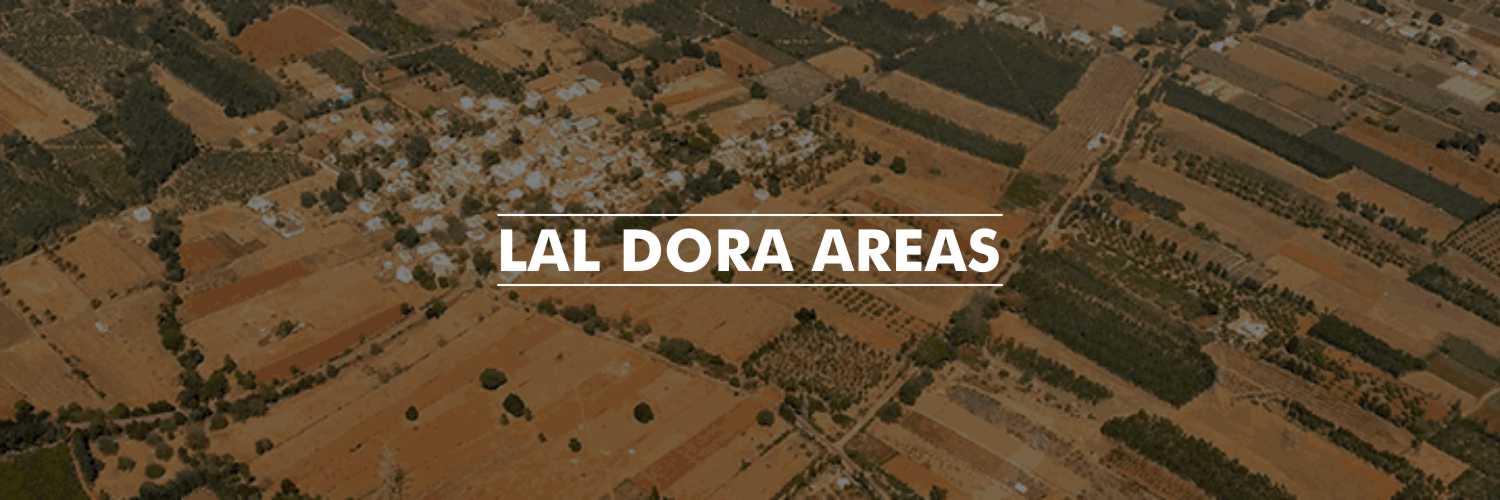Property is not merely a piece of land or some asset. It is a much wider concept. Property is a relation of a person, juristic person or entity with an object upon which such person holds a right over it. In India, the concept of “Property” has been dealt with various enactments such as Benami Transactions (Prohibition, Act), 1988 and Sale of Goods Act, 1930. By a comparison of the concept of “Property” as provided in the above Acts, it is safe to understand the true meaning of “Property”. Property is, therefore, an object whether tangible- intangible, movable-immovable over which an individual claims ownership with all the rights accrued along with. Claiming right over an object often comes with legal hindrances that could be sorted out by taking the opinion and assistance of an advocate dealing with property matters because an expert property lawyer will be profoundly conversant with the property laws and jurisprudence.
There are different types of property in India which can be classified into:
Movable and Immovable Property
In layman’s language, it is very much clear that movable property is that which can be moved from one place to another without any damage. Immovable property, on the other hand, is the one which cannot be moved and those things which are attached to the earth but with certain exceptions.
Some of the major differences between movable and immovable property are
- A movable property need not be registered under the Registration Act, 1908 while immovable properties exceeding the value Rs 100 must be registered under the Registration Act.
- Movable property is subjected to sales tax under the General Sales Tax Act and Central Sales Tax Act, 1956. On the other hand in case of immovable property, instead of any sales tax, one is obliged to pay the stamp duty (under Indian Stamp Act, 1899) and registration fee for registering the property under Registration Act, 1908.
- Transfer of property is not easy in case of immovable property in comparison to movable property. Mere delivery of movable property will complete the transfer process. On the contrary, for immovable property, registration is necessary for the name of the transferee.
- The immovable property will add to the ancestral impartible estate while the movable property will not.
- Example of movable property includes vehicles, timber, crops, home accessories like curtains, beds, almirah, etc. Immovable property examples will include land, building, trees attached to the land.
Other than that, movable and immovable property is clearly and specifically defined as the kinds of property under the Transfer of Property Act, 1882.
Movable Property Definition in Law
As per Section 2(9) of the Registration Act, 1908, “Movable property includes standing timber, crops, and grass, fruit upon and juice in trees, and property of every other description, except immovable property.”
Section 22 of IPC defines movable property as, “the words “immovable property” is intended to include corporeal property of every description, except land and things attached to the earth or permanently fastened to anything, which is attached to the earth.
As per Section 3(36) of the General clauses Act, “ Movable property shall mean the property of every description, except immovable property.”
Immovable Property Definition in Law
The major legal framework which governs almost all the property matters is the Transfer of Property Act, 1882. Section 3 of the Transfer of Property Act describes the immovable property as all the immovable things and property rights by excluding timber, grass, and crops.
Section 3(26) of the General Clauses Act, describes immovable property as “Immovable Property” shall include land, benefits to arise out of land and things attached to the earth, or permanently fastened to anything attached to the earth.
Registration Act, 1908 defines immovable property in its Section 2(6) as “Immovable property includes land, buildings, hereditary allowances, rights to ways, lights, ferries, fisheries, or any other benefit to arise out of the land and things attached to the earth or permanently fastened to anything which is attached to the earth but not standing timber, growing crops, nor grass.”
Section 269UA of the Income Tax Act, 1961 defines immovable property as Immovable property means
- Any land or any building or part of a building, and includes where any land or any building or part of a building is to be transferred together within any machinery, plant, furniture, fittings, or other things, such as machinery plant furniture, fitting or other things also Explanation: For the purposes of this sub-clause, “land, building, machinery, plant, furniture, fittings, and other things” includes any rights therein;
- Any rights in or with respect to any land or any building or part of the building (whether or not including any machinery, plant, furniture, fittings, or other things therein) which has been constructed or which is to be constructed, accruing or arising from any transaction (whether by way of becoming a member of, or acquiring shares in a cooperative society, company or other association of persons or by way of any agreement or any arrangement of whatever nature), not being a transaction by way of sale, exchange or lease of such land, building or part of a building.
Tangible and Intangible Property
Tangible property is anything of physical existence that can be touched or felt, e.g., jewelry, furniture, automobiles, books, utensils, etc. These tangible personal properties can be a fixture fastened in real estate but only when they can be removed without any damage.
On the other hand, the intangible property doesn’t have any physical existence and therefore cannot be touched or felt, but represents something of value. Securities, bonds, patent rights, intellectual property rights, copyright, trademarks, brand names, franchises, computer software, etc will fall under intangible property. Ownership of any intangible property entitles the owner to enjoy the right to do something or the right to use something.
Private and Public Property
Private property designates a legal and non-governmental entity with the ownership of a property. This can either include personal property or capital goods. The concept of private property is supported and enforced by the political system of a country. Besides that, a property is considered private property when it is owned by an individual or by a juristic person for personal use and benefit. Any tangible or intangible property owned by an individual or corporation e.g., land, building, copyrights, patents, etc.
Public property as the name signifies belongs to the public and is owned by the state. Therefore the property entirely belongs to the public and not to an individual or a firm e.g., parks, hospitals, public toilets, etc. All other amenities or premises which are managed by the government or a community for the convenience of the public come under public property.
Personal and Real Property
Personal property is anything of tangible or intangible nature that belongs to an individual. The most significant feature of personal property is the portability of the things an individual owns e.g., furniture, curtains, utensils, vehicle, paintings, etc. It comprises of chattels and intangibles.
- All kinds of the tangible and movable property fall under chattels. Chattels can be felt or touched and can be moved from one place to another without any destruction. However, things like a furnace can fall into the separate personal property even after being a fixture. As this can be removed by the tenant.
- Securities, bonds, franchises, patents, copyright, trademark, bank accounts, etc are the intangibles that cannot be touched or felt but entitle the owner to a specific right to do something or the right to use something.
Contrarily, real property/real estate is a much wider concept which includes land, things attached to the land, and any development or improvement done on that land. This includes immovable property. In addition to land or building being a type of real estate property, additional accessories (steel, wood, cement, etc) used in making that development or improvement on the land will also add up to the real property. Such kind of fixture is also considered real property. The examples of types of real property will comprise anything that is affixed to the land i.e., crops, mines, machinery, buildings, wells, canals, roads, etc.
Corporeal and Incorporeal Property
The corporeal property encompasses the right to ownership of material things. All tangible and visible things which can be touched and felt by senses will fall under this property category. It is further divided into two categories, i.e.,
- Movable and immovable property
- Personal and real property.
On the other hand, incorporeal property means the right to ownership of non-material things. The incorporeal property includes different legally protected valuable interests or intangibles that cannot be touched or felt but carries specific value. It is also called as conventional and intellectual property.
Likewise corporeal property, the incorporeal property is also divided into two classes, i.e.,
- Jura in re propria, (over material things) e.g., copyright, IPR, trademark, patent.
- Jura in r Aliena encumbrances (over material and non-material things) e.g., mortgage, lease, etc.
The aforementioned are the major classification of property in jurisprudence notes. So be clear with the kinds of property and the procedure to obtain a property in India. Because the occurrence of property disputes like neighbors squabbling over a piece of land, infringement of property rights of NRIs, property-related family disputes in India, etc is highly prevalent. The public can either choose a less expensive, less tedious, and amicable solution for their property dispute settlement without approaching the court for the matter while it’s a family matter. Even in other cases if both parties reach a decision amicably, they can avoid the hassle to a greater extent. However it is a serious property dispute and court involvement is necessary, one should opt for that. In both cases, a seasoned and distinguished property lawyer is a fulcrum in the whole process.
This article is written by Varsha. You can contact the author via email at bnbvarsha@gmail.com.
For more information and professional consultation regarding property matters, our expert property lawyers in Chandigarh can be contacted from Monday to Friday between 10:00 am to 6:00 pm and between 10:00 am to 2:00 pm on Saturdays.









